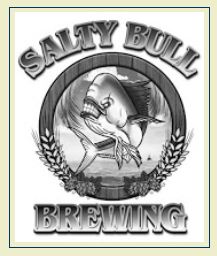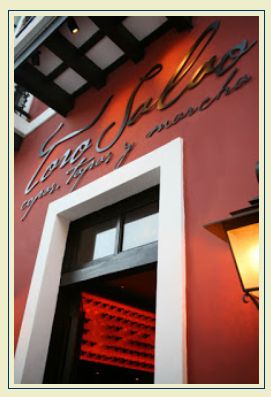The USPTO refused to register the mark SALTY BULL BREWING & Design (shown below) for "Restaurant and bar services; Taproom services; Taproom services featuring beer brewed on premises" [BREWING disclaimed], finding a likelihood of confusion with the registered mark TORO SALAO for "Restaurant services, including sit-down service of food and take-out restaurant services." The services overlap, and,according to the examining attorney, TORO SALAO is Spanish for "salty bull." How do you think this came out? In re Hop Daddy LLC, Serial No. 88175921 (August 24,2020) [not precedential] (Opinion by Judge Mark Lebow).

The Board keenly observed that marks are different in appearance and sound, "but equivalency in meaning or connotation can outweigh the differences in marks." The examining attorney relied on the doctrine of foreign equivalents, but that doctrine "is not absolute but should be viewed merely as a guideline," applied "only when: (1) the relevant English translation is direct and literal and there is no contradictory evidence establishing another relevant meaning", and (2) "it is likely that the ordinary American purchaser would 'stop and translate [the word] into its English equivalent.'" The "ordinary American purchaser" includes "all American purchasers, including those proficient in a non-English language who would ordinarily be expected to translate words into English."

Applicant conceded that "toro" translates into English as "bull," but disputed the evidence that "salao" means "salty," which evidence consisted of two anonymous blog posts that provided differing opinions on the possible meaning of "salao" depending on context. There Board found "no clear translation and connotation" for the word "salao."
Although "we have routinely applied the doctrine of foreign equivalents to Spanish language marks," see, e.g., In re Aquamar, 115 USPQ2d at 1127, the absence of any actual dictionary translation from a recognized source for this common language raises some doubt as to whether "salty" is a direct and literal translation of SALAO. Moreover, according to the Cambridge and Collins dictionaries, the direct translation of "salty" from English to Spanish and vice-versa is "salado."
The Board therefore found insufficient evidence to show that "salao" is a direct and literal translation of "salty," and therefore the doctrine of equivalents does not apply.
Concluding that the marks differ in in overall appearance, sound, connotation, and commercial impression, the Board reversed the refusal to register.
The content of this article is intended to provide a general guide to the subject matter. Specialist advice should be sought about your specific circumstances.

